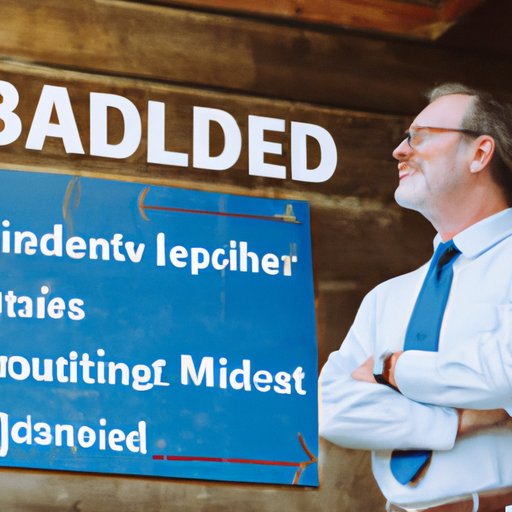Introduction
Leadership is often seen as one of the most important aspects of any organization. A good leader can have a positive effect on team morale and productivity, while a bad leader can have the opposite effect. But what does it mean to be a good leader?
In this article, we will explore the definition of good leadership and analyze the characteristics of good leaders. We will also investigate the role of a good leader, examine the benefits and challenges of being a good leader, and assess the necessary skills for good leadership.

Analyzing the Characteristics of a Good Leader
Good leaders possess a variety of qualities that make them effective in their roles. According to a study by the Harvard Business Review, the top five characteristics of good leaders are integrity, visionary thinking, communication skills, confidence, and the ability to inspire others.
Integrity – A good leader is honest and trustworthy. They demonstrate high ethical standards and do not compromise their values.
Visionary Thinking – Good leaders have a clear vision for the future and understand how to achieve it. They are able to anticipate potential problems and plan ahead.
Communication Skills – Good leaders are good communicators. They are able to effectively express their ideas and listen to the ideas of others.
Confidence – Good leaders have a strong sense of self-confidence. They are comfortable taking risks and making difficult decisions.
Ability to Inspire Others – Good leaders are able to motivate and inspire their followers. They create an atmosphere of enthusiasm and optimism.

Exploring What Makes a Good Leader
Good leaders are able to build trust with their followers. They are open and transparent in their communication and treat everyone with respect. They also empower their followers by giving them autonomy and responsibility.
Good leaders also set a good example for their followers. They lead by example and demonstrate the behaviors they expect from others. They take responsibility for their actions and show humility when they make mistakes.

Examining the Benefits of Being a Good Leader
Being a good leader has many benefits. A good leader will earn the respect of their followers, which will lead to improved morale and increased productivity. A good leader can also avoid conflict by managing disagreements in a constructive manner.
Good leaders are also able to foster collaboration and teamwork among their followers. This can lead to higher quality work and more efficient problem solving.
Understanding the Role of a Good Leader
A good leader is responsible for making decisions and preparing for change. They must be able to adapt to new situations and anticipate potential problems. They must also lead by example and demonstrate the behaviors they expect from their followers.
Good leaders must also be able to motivate their followers and inspire them to reach their goals. They must be able to provide feedback and recognize the efforts of their team members.
Exploring the Challenges of Being a Good Leader
Being a good leader can be challenging. A leader must be able to deal with difficult people in a constructive manner. They must also be able to make tough decisions, even when those decisions may not be popular.
Leaders must also be able to overcome their own fears and doubts. They must learn to trust their instincts and take risks when necessary.

Investigating the Impact of Good Leadership
Good leadership can have a positive impact on an organization. It can improve morale and encourage collaboration. It can also lead to higher quality work and increased teamwork.
Good leadership can also help to foster innovation and creativity. It encourages people to think outside the box and come up with new solutions to old problems.
Assessing the Necessary Skills for Good Leadership
Good leaders need to possess a variety of skills in order to be effective. These include time management, conflict resolution, and adaptability. Good leaders must also be able to motivate and inspire their followers.
Good leaders must also be able to communicate effectively and listen to the ideas of others. They must be able to make decisions quickly and confidently.
Conclusion
Good leadership involves a variety of qualities and skills. From integrity to communication and setting an example, there are many traits that make a good leader. Good leaders are able to build trust, empower their followers, and inspire them to reach their goals.
Being a good leader can have many benefits, including increased respect from followers and improved productivity. However, there are also challenges, such as dealing with difficult people and making tough decisions. Good leaders must be able to overcome these challenges and continue to develop their leadership skills.
(Note: Is this article not meeting your expectations? Do you have knowledge or insights to share? Unlock new opportunities and expand your reach by joining our authors team. Click Registration to join us and share your expertise with our readers.)
